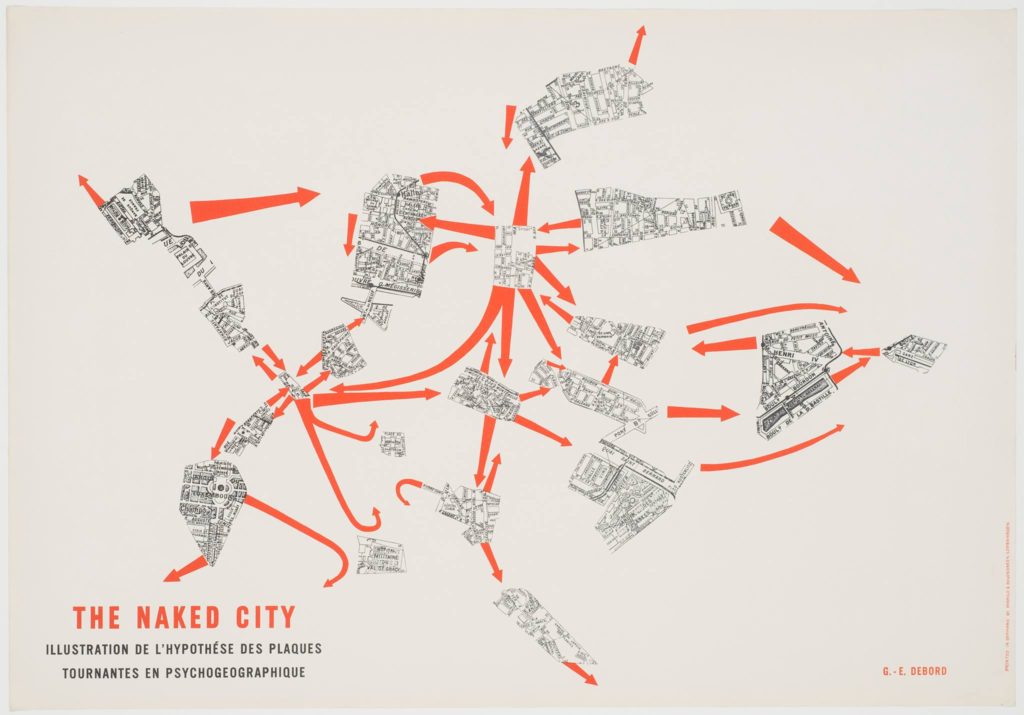
COURSE OBJECTIVES
This course will introduce students to a range of ideas that have defined contemporary architectural discourse by surveying well-renowned works, as well as committing to deeper readings of a limited selection. The intention is not to approach the past century through a ‘total’ or ‘official’ narrative, but instead, to confront a number of ideas that challenge conventional notions of our discipline. There is no intention to outline a unified history, but instead to acknowledge a constellation of approaches and ambitions. Students will emulate the format of case studies towards their own interpretations, and so written submissions will be heavily accompanied by mixed media. The course looks to foster critical thinking principally through peer discussion. Each major topic is introduced by the instructor, while elaboration is the responsibility of a rotating roster of student discussion leaders.
LEARNING OUTCOMES
Students will gain a basic understanding of a broad range of projects, yet should be able to engage more deeply with a select few that resonate with their own interests and intellectual directions. They will be cognizant of the numerous movements, styles, and individual works that define the complex manifold of architecture developed over the past century. They will be encouraged to ‘read’ theory and history by adapting past ideas towards their current world views, as applied to their own environmental experiences. It is the ambition of the course that each student will encounter a work that will serve as a catalyst for their own design thinking.
Academic Integrity
If a portion of your work (e.g., in a blog) is not your own, you must cite the source completely. Images are also copyrighted. Even when you utilize “copy-free” work from Wikimedia Commons, there are rules for how the author is to be credited. From the Library Tutorials for Research Success: (http://library.lehigh.edu/teaching_support/information_literacy_teaching_research_skills/tutorials_research_success): “You need to steer clear of any form of plagiarism to be an ethical and information literate student, one confident in his/her ability to research a topic from different sources and to effectively synthesize that information with a clear understanding of when to quote, when to cite and how to paraphrase. Please read the guides provided here for help on being that kind of student, able to complete a research assignment with confidence and with the knowledge that your course assignment is your own work.”
tldr: don’t copy without crediting your source
Academic Performance and Grading Criteria
- Participation – 50%
- Attendance 10%
- Weekly discussion participation – 40%
- Quizzes – 20%
- Midterm Quiz – 10%
- End of term Quiz – 10%
- Final Submission – 30%
- Attendance to all sections is mandatory as this course is heavily dependent on group discussion, therefore any unexcused absence will reduce your overall grade by 5% for each session. Upon a student’s third unexcused absence, a Section 3 report will be filed with the University.
- If you cannot make it to class due to extenuating circumstances, please discuss issues with me before or after class, and your absence will be partially or fully excused.
- Quizzes and the final submission are mandatory for completion of this course. Failure to complete these assignments will result in an incomplete grade.
Accommodations for Students with Disabilities
If you have a disability for which you are or may be requesting accommodations, please contact both your instructor and the Office of Academic Support Services, Williams Hall, Suite 301 (610-758-4152) as early as possible in the semester. You must have documentation from the Academic Support Services office before accommodations can be granted.
Environment
Lehigh University endorses The Principles of Our Equitable Community [http://www.lehigh.edu/~inprv/initiatives/PrinciplesEquity_Sheet_v2_032212.pdf]. We expect each member of this class to acknowledge and practice these Principles. Respect for each other and for differing viewpoints is a vital component of the learning environment inside and outside the classroom.
University Statement on Remote Learning
To meet the challenge of teaching and learning during the COVID-19 pandemic, Lehigh instructors and students will be adopting new forms of instruction and interaction; following new guidelines around classroom behaviors; enhancing communications; and doing our best to be patient, flexible, and accommodating with each other. In remote synchronous meetings, students are expected to attend just as they would any other Lehigh class. Zoom classes work best when all students come to class ready to participate and follow the instructor’s guidelines regarding use of web-cameras. You may be asked to turn your camera on during active learning sessions in Zoom. If you have a strong preference not to do so, please contact your instructor to let them know. Students should respect the in-classroom privacy of their instructors and fellow students by not taking screenshots or recording class sessions. Some instructors will record Zoom sessions; however, any recorded live sessions will be shared only with students in the class and will be deleted at the end of the semester.
